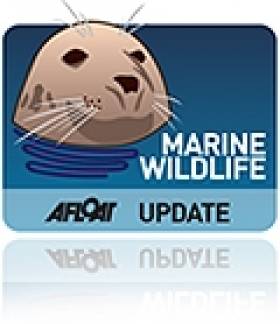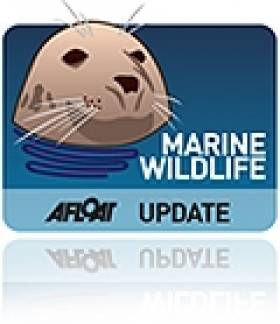Displaying items by tag: narwhal
Clare Beach 'Narwhal' Was No Such Beast, Experts Confirm
#MARINE WILDLIFE - The mystery creature washed up on a Co Clare beach last month has been confirmed to be a long-finned pilot whale, and not a narwhal as had been alleged.
As previously reported on Afloat.ie, the situation was a source of puzzlement for the Irish Whale and Dolphin Group (IWDG) as the carcass was removed from Liscannor beach before their scientists could examine the remains.
Experts had been hoping to verify an eyewitness report that the carcass was indeed that of a narwhal, an Arctic cetacean renowned for its unicorn-like tusk. It would have been the first recorded sighting of a narwhal in Irish waters.
But RTÉ News reports that images sent to the IWDG confirm at last the identity of the animal as a long-finned pilot whale.
It marks the fourth reported stranding of a pilot whale in Co Clare and the 16th around Ireland this year alone.
The IWDG added that it was "always sceptical that the whale was a narwhal", and said Clare County Council did not deserve the criticism it received for removing the carcass over public health concerns.
Mystery of Missing 'Narwhal' in Clare is Solved
#MARINE WILDLIFE - The mystery disappearance of an allegedly rare whale carcass from a Co Clare beach last week has been solved.
As The Irish Times reports, Clare County Council admitted yesterday that the "badly decomposed whale" was removed from Liscannor beach "due to public health concerns".
The vanishing of the creature had been a source of puzzlement to the Irish Whale and Dolphin Group (IWDG), after scientists dispatched to examine the carcass found no trace on arrival.
Experts had been hoping to verify whether the carcass was indeed that of a narwhal, an Arctic cetacean renowned for its unicorn-like tusk.It would have been the first recorded sighting of a narwhal in Irish waters.
Max Halliday from Shannon, who reported the find to the IWDG, said he was "convinced that what I saw is a narwhal. It had the long tusk protruding from its head, but its head was badly damaged. I am absolutely mad that I didn't take a photo."
According to the Irish Independent, the IWDG had appealed to those responsible for removing the whale to get in touch so the remains could be transferred to the Natural History Museum.
But it has since emerged that the creature was taken to a rendering plant in Derry by a team contracted by the council.
A spokesperson for Clare County Council said no remains of a tusk were found in the removal operation.

























































